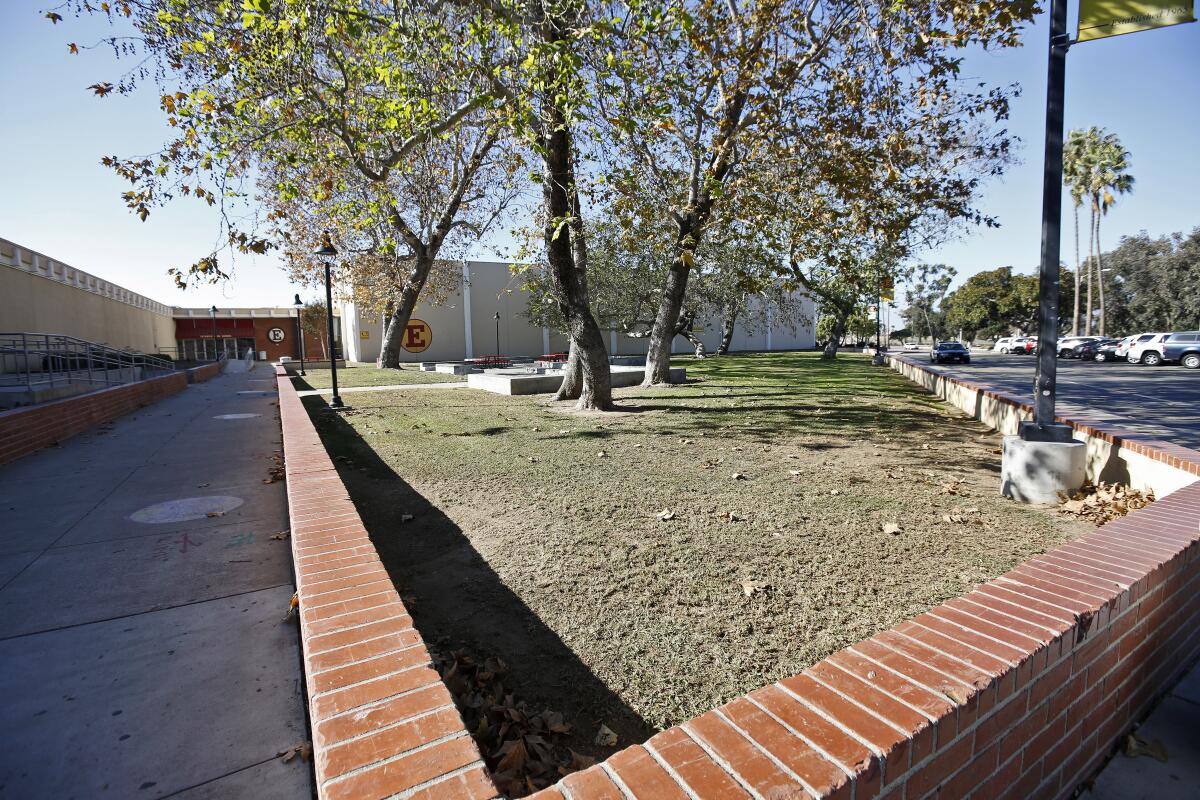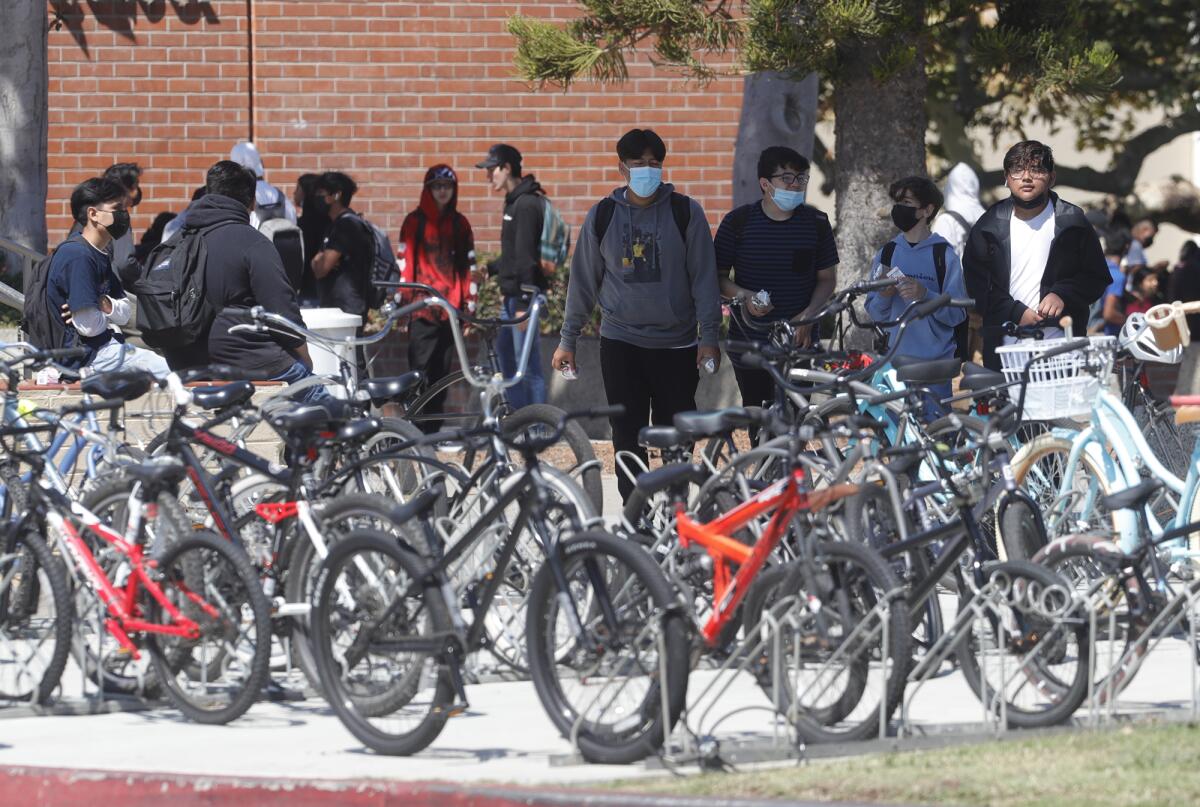Judge says Costa Mesa officials late to class in challenging $32M Estancia theater project

A lawsuit filed by the city of Costa Mesa to halt construction of a $32-million performing arts complex at Estancia High School, on the grounds school district officials failed to provide public review of the proposal, has been denied.
The dispute hinged on whether a 180-day deadline for legally challenging a project — under the California Environmental Quality Act (CEQA) — began after Newport-Mesa Unified School District initially approved the work in October 2019 or after they declared the project exempt from CEQA review in December 2020.
In a Jan. 15 petition for writ of mandate, Costa Mesa City Atty. Kimberly Hall Barlow acknowledged school board members approved plans for a 46,000-square-foot complex with a 350-seat theater and lobby, a black box theater and new concession, storage and backstage areas on the Costa Mesa campus during an Oct. 7, 2019, meeting.
NMUSD had not yet conducted any environmental review, a step that allows the public to weigh in on plans that could present significant impacts to an area. In December 2020, trustees adopted a resolution finding the scope of work exempt from CEQA review, thus precluding any public feedback.

Newport-Mesa officials maintained that, because the project would not increase Estancia’s student population, or require a change in facility use, it did not require such review.
City officials argued the project and its construction present significant impacts to aesthetics, open space, air quality, traffic and public access to the campus and said a proper CEQA review, not the board’s 2019 vote, should trigger the 180-day complaint window.
In a tentative ruling filed on Nov. 12, Orange County Superior Court judge Randall J. Sherman sided with Newport-Mesa Unified, saying the clock began ticking when the board approved the project and determining the city’s objection had not been filed within the required 180 days.
“Respondents have shown that on Oct. 7, 2019, the district made a 7-0 decision to approve the site plan and the schematic design of the project, which committed the district to a definite course of action,” Sherman wrote.

“The board made a formal and official decision when it approved the schematic design for the Estancia High School Theater,” he continued. “This decision triggered the 180-day statute of limitations, barring the petition, which was filed over a year later on Jan. 15, 2021.”
School district officials may proceed with their plans for Estancia, which include repurposing an existing theater into a lecture hall, installing perimeter fencing and demolishing a nearly 1-acre senior lawn, containing more than 30 mature sycamore trees, to accommodate the build.
“We are pleased with the ruling and are excited to continue moving forward with the project, which is expected to begin construction in early 2022,” NMUSD spokeswoman Annette Franco wrote in an email Friday.
The project is anticipated to be completed by summer of 2024. But Costa Mesa officials still have the option to appeal Sherman’s decision. Hall Barlow said Friday the City Council would discuss the matter in a Dec. 7 closed session meeting.
The attorney said she believes the district engaged in a bait and switch, telling the public when they approved the project an environmental review, and a chance to provide feedback, would be forthcoming and then later exempting the project from such review.
“It deprived the entire public an opportunity to weigh in on the project — I don’t think that’s what the public expected,” Hall Barlow added. “That’s not a very good moral lesson for the students of the school district.”
All the latest on Orange County from Orange County.
Get our free TimesOC newsletter.
You may occasionally receive promotional content from the Daily Pilot.




